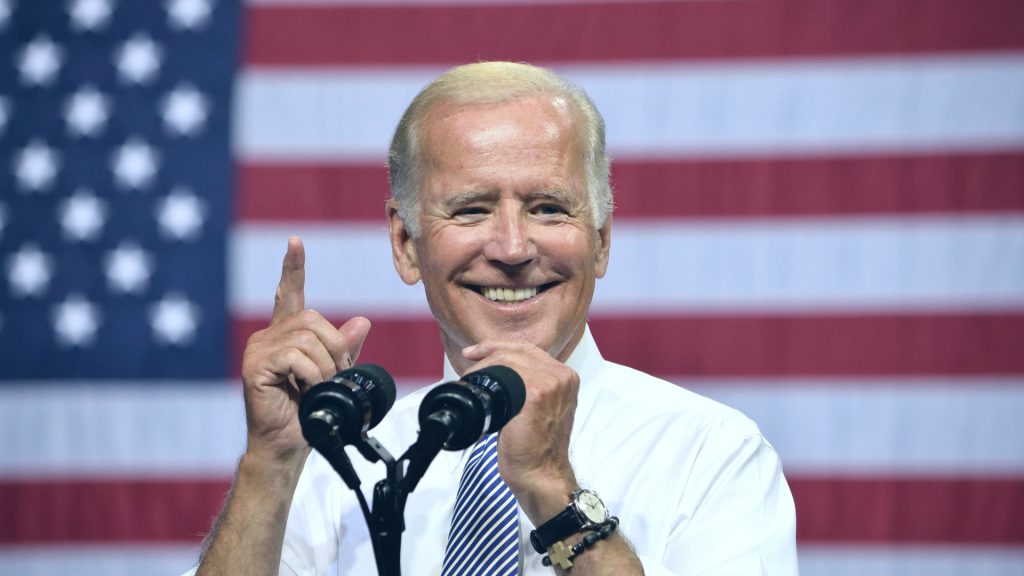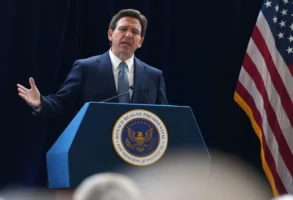
Published August 12, 2020
In the name of fighting what he calls “sprawl,” Joe Biden has promised to hold hostage $12 billion in Surface Transportation Block Grants to the states unless they agree to abolish suburban single-family zoning. This follows a strategy devised by Senator Cory Booker and House majority whip James Clyburn. Under the Biden plan, America’s suburbs must reject their way of life and opt for high-density, urban-style development instead — or suffer the consequences. By holding Surface Transportation Grants hostage, Biden will effectively turbo-charge the already draconian anti-suburban strategy embodied in the Obama–Biden administration’s massively overreaching AFFH (Affirmatively Furthering Fair Housing) regulation. The result will be the end of America’s suburbs as we know them.
The Opportunity Solutions Project, a state-level think tank in Florida, has just issued a report by Chase Martin exploring some implications of Biden’s coercive housing strategy. The report is entitled, “America’s Neighborhoods under Attack: How the Biden Plan Threatens More Than $12 Billion In Transportation Funding for Already-Tapped States.”
Martin’s report provides important context for Biden’s anti-suburban plans. The report begins by explaining that Medicaid spending by states has more than tripled in the last two decades, growing from $184 billion in 2000 to more than $600 billion in 2018. That has crowded out state spending on education, public safety, and transportation. Federal Surface Transportation Block Grants are designed to help fill in the funding gaps. Yet this leaves cash-strapped states with little choice but to accept any conditions placed on the grants. The alternative is to see serious deterioration in state roads, along with massive job loss among the hundreds of thousands of workers nationally who build and repair roads, or provide supplies for that repair.
Martin then reviews the history of the use of federal transportation funding to coerce various state-level policies. Such actions are rare, but not unprecedented. In 1974, in the face of a nationwide fuel shortage, Congress and President Nixon demanded that states adopt a 55 miles per hour speed limit or face loss of federal transportation funding. The states complied. A year later, federal transportation funds were conditioned on the adoption of a requirement to wear motorcycle helmets. In 1984, President Reagan demanded that states adopt a drinking age of 21, and this conditioning was upheld by the Supreme Court in South Dakota v. Dole. In 1995, a Republican Congress forced President Clinton to undo both the de facto national speed limit and helmet law. As Martin points out, however, at least these requirements bore some relationship to transportation.
The use of transportation funding to coerce the elimination of single-family zoning, on the other hand, is an extraordinary and unprecedented case of federal overreach. Using transportation funding as a lever would appear to give the federal government almost unlimited power over states and localities. And as Martin points out, in the wake of the economic fallout from COVID-19, states are even less well-placed to resist federal coercion. Florida, for example, has lost billions of dollars in tourism and toll road revenues during the pandemic. Loss of federal road repair funding would be untenable at this point. (By the way, Martin’s report provides a helpful chart showing how many hundreds of millions — and sometimes billions — each state receives in federal transportation funding.)
What will actually happen once Biden and a Democratic Congress follow through on their promise to lever Surface Transportation Block Grants against suburban single-family zoning? We don’t know, since coercion on this scale, and of this type, is unprecedented. One possibility is that some states might simply reject the money in view of the strings attached. Again, however, given the financial hole the states are now in, that is hard to imagine. Another possibility is that a state might adopt the federal mandate wholesale by abolishing single-family zoning statewide. This is far from impossible. Oregon essentially abolished single-family zoning last year. California is debating similar measures right now.
The Booker–Clyburn bill that inspired Biden’s promise to fight “sprawl” by abolishing single-family zoning amends the law on Surface Transportation grants to say that, “A project under this section may not be carried out unless the community in which the project is located” has implemented a strategy to replace single-family zoning with a menu of pro-density measures. So maybe states will accept their Surface Transportation grants, while individual communities will exempt themselves from state road repairs. Yet what suburban community could afford to allow its road to go unrepaired, or leave itself cut off from newly constructed arteries?
One way or another, Biden’s unprecedented plan to use state road funding to compel the elimination of single-family zoning is going to harm Americans profoundly. Either suburban self-governance will become a thing of the past — while the suburbs themselves come to resemble the dense cities their residents chose to leave — or America’s cash-strapped states will lose billions of dollars and tens of thousands of jobs at a moment of economic crisis, while watching their roads deteriorate. Name your poison. It’s one or the other if Biden and the Democrats win.
Stanley Kurtz is a senior fellow at the Ethics and Public Policy Center.








